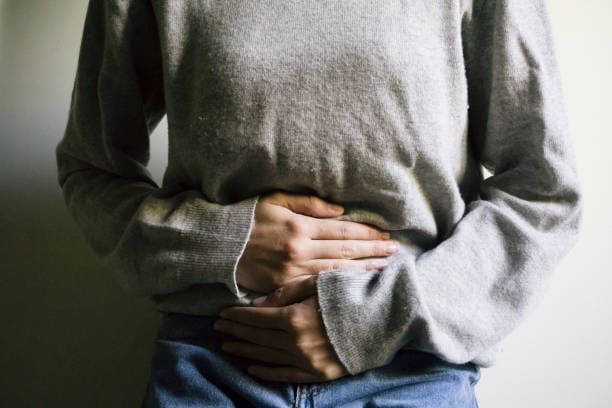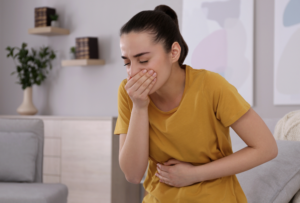The use of cannabis for women’s health is not a recent phenomenon; its historical usage spans diverse cultures and time periods, from ancient China and Egypt to 19th-century Western medicine. It has been employed to address a spectrum of conditions, including menstrual pain and aiding childbirth. In recent years, conversations surrounding women’s health have expanded to include alternative therapies and holistic approaches.
Cannabis for Menstrual Pain
About 60% of women experience menstrual pain during their period, with 5% to 15% of people reporting menstrual pain that’s so severe that it affects their daily activities. Traditional treatments for menstrual pain typically involve non-steroidal anti-inflammatory drugs (NSAIDs) or hormonal contraceptives, which may result in side effects, including gastrointestinal issues and heightened blood clot risk. Alternatively, opioids, though another option, come with the risks of dependency and various adverse effects, emphasizing the necessity for safer, more efficient alternatives.
As modern research explores the mechanisms through which cannabinoids influence the female reproductive system, a promising realm of therapeutic possibilities emerges. Research indicates that cannabinoids have the potential to significantly alleviate menstrual discomfort and inflammation, presenting a holistic approach to managing conditions like dysmenorrhea and endometriosis without the downsides associated with conventional pharmaceuticals.

The cannabinoids within cannabis, particularly THC (tetrahydrocannabinol) and CBD (cannabidiol), work by interacting with the body’s endocannabinoid system, known to regulate pain perception and inflammation. Research suggests that these compounds possess analgesic properties, offering effective relief from menstrual pain without the side effects commonly associated with traditional pain medications.
Cannabis-based methods also provide diverse consumption methods, including tinctures, edibles, topical creams, and vaporizers, catering to individual preferences and needs of women, making it an attractive alternative.
Endometriosis
Endometriosis, a chronic condition affecting around 10–14% of women, is challenging to manage, due to its complex pathogenesis and limited treatment options. Studies suggest that cannabis can effectively reduce pelvic pain, gastrointestinal discomfort, and mood disturbances associated with endometriosis.
Studies have found that endocannabinoid receptors have been found throughout female reproductive tissue and the use of exogenous cannabinoids may alleviate endometriosis-associated pain. New research offers hope for individuals with endometriosis, as current medical treatments often come with side effects and are deemed suboptimal by many of those affected by the condition.
Cannabis for Menopause Relief
Menopause, marked by the cessation of menstrual cycles and hormonal fluctuations, often brings with it a myriad of uncomfortable symptoms such as hot flashes, mood swings, insomnia, and vaginal dryness. In Canada, strategies for managing menopause encompass a variety of approaches, including menopausal hormone therapy, non-hormonal prescription medications, lifestyle adjustments, and complementary therapies, like cognitive behavioral therapy.
Cannabis as a method for treating menopause symptoms is becoming increasingly popular; a study presented at the 2023 annual meeting of the Menopause Society found that women are increasingly using cannabis products to mitigate symptoms such as sleep difficulties and mood issues, and that women and adults aged 50+ are now the fastest growing group of cannabis users.

Dr. Heather Hirsch, head of the Menopause and Midlife Clinic at Harvard-affiliated Brigham and Women’s Hospital believes that it helps by dimming the prefrontal cortex, the decision-making part of our brain, therefore helping women relax, get better sleep, and alleviate menopause-related anxiety.
Hot flashes, frequently regarded as the most prevalent menopause symptom, did not show significant improvement with cannabis use, though this would be expected given cannabis is not believed to have a substantial impact on the hypothalamus, which is considered the body’s thermostat.
Final Thoughts
Cannabis presents a promising avenue for enhancing women’s health, offering relief from menstrual pain and endometriosis to menopausal symptoms. While early findings are encouraging, further research is necessary to fully understand its effectiveness, safety, and long-term impacts. As attitudes shift and regulations evolve, fostering informed discussions and scientific exploration is crucial. Empowering women with access to evidence-based care and informed choices is vital in navigating the complexities of health and wellness. Kanab is happy to be offering the women of Toronto products that have the potential to support wellbeing and pain-relief.
© Kanab Inc. – Kanab Inc. is a Toronto based cannabis retail company that honors the historical significance and uses of the cannabis plant across cultures and civilizations. Kanab has now opened its first cannabis dispensary at the intersection of Don Mills Road and York Mills Road in North York region of Toronto, Ontario (South of 401, West of 404 / Don Valley Parkway, and East of Leslie). For more info, please visit: kanab.ca






